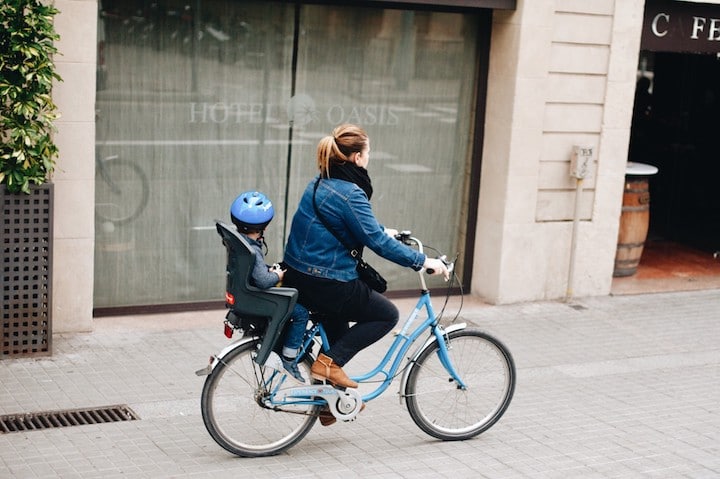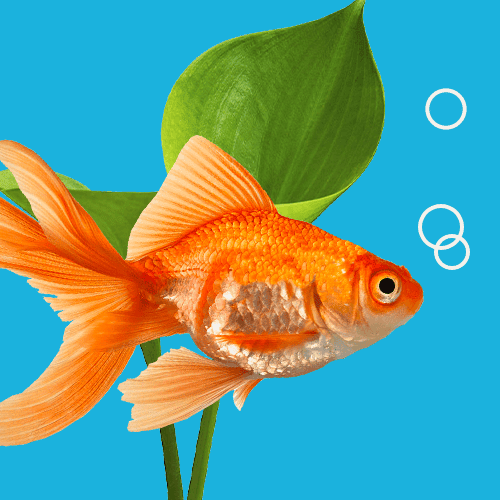I didn’t think much about self-care until I started a master’s in clinical psychology. Actually, I didn’t think of it much then, either.
The majority of the first week’s classes focused on making sure all of us were emotionally prepped for client work, and I sat through each lecture thinking “I don’t need to learn any of this.” I’d already interned at a jail and was confident that my idea of self-care — coming home after a long day to watch 5-8 episodes of Law & Order — was going to get me through the years before licensure just fine.
I was wrong. Not just because I ran out of L&O before the first year was over, but because as things got harder and harder and the stress piled on, just vegging out in front of the TV wasn’t doing it anymore. If you’ve tried this method, you’re probably feeling a little bit of the same. Nothing wrong with bingeing a season of Mad Men over a lazy weekend, but if that’s all you’re doing to make sure you’re feeling good about yourself, it can start feeling a little empty.
Self-care is not (necessarily) a warm bath
If you’re a little wary of self-care, too, I get it. For a long time, I thought that “doing things for yourself” had to be synonymous with “take a warm bubble bath” or “spend a relaxing day at the spa.” That doesn’t have to be part of your routine. But it’s a good idea to find something that makes you feel good, even if you sometimes forget what feeling good actually is.
For me, it was going to therapy and meditating. For you? It might be something completely different. Here are a few ideas that may help you take the first step. (Pro-tip: It may feel weird at first, but you gotta just go with it.)
Go outside
You don’t even have to work out. You just need to get outdoors and take a breather for a couple of minutes a day. Being out in the sunlight will increase your levels of Vitamin D (which helps fight illness and dark moods) and give you a much-needed respite from being cooped up in the office or at home all day. If you want to make an all-day thing of it, activities such as forest-bathing (a fancy term for taking a walk in nature) have been shown to reduce stress and boost physical health. But no pressure.
Get your eating to a good place
How often do you miss lunch because you’re just chilling at your desk? Or skip it because you’re going to go ham on that Seamless order for dinner? A lot of us are skipping out on meals and then wondering why we feel tired, cranky, and unable to concentrate. If you’ve never tried meal-prepping (I’ve just started), it can be a surprisingly peaceful activity. And knowing where your next meal is coming from (your fridge) and when you’re going to eat it will help you establish a routine, give you a sense of accomplishment (I know, but it really is that easy! Not only that, you avoid both the sugar crash and the bad feelings that come with paying $3 for a candy bar at your local bodega.
While we’re on the subject: Drink more water
I know, I know: You’ve read this a million times before. But has that ever spurred you to take action and actually start drowning your insides in cool liquid refreshment? Probably not. It took years for me to get it. So I’m just going to make this one quick: Drink more water. Get fewer headaches. Worry less about your skin even as the crisp fall weather tries to chap it into a leathery hide.
Go easy at the gym
Here’s how exercise for many of us: We recognize we need to do it, set our alarm clocks for 6am, and then hit snooze until it’s too late to get a workout in (especially easy when it’s cold and dark as hell outside in the fall). Then, when we do finally get around to going to the gym or taking a run, we overdo it to the point that going back feels like the worst punishment in the world.
Give yourself a break. It’s true that doing some exercise (swimming, even taking a walk) a few times a week can help reduce feelings of stress, anxiety, and depression, but it’s also true that going “too hard” has been associated with worsening mental health. And since this is all about making yourself feel good, take it as easy as you’d like.
Meditate
Make no mistake, meditation isn’t easy. That’s why it’s so easy to give up on. Your friends tell you that you should try it — “it’s changed my life!” — and you go home thinking that all you need is an app that will tell you what to do and an hour of silence. And then three minutes in you’re bored and anxious and are sure that this whole “being mindful” thing isn’t for you.
It might not be, but it’s likely the unrealistic expectation you’ve set for yourself is the problem. No one meditates for an hour with a snap (insert Thanos gif here) because our minds are designed to go all over the place. At first, It’s more about doing short sets at a high frequency (ten minutes, once a day) to make meditation a part of your daily routine. Then, you’ll find a timeframe that works for you.
Trust me, I’ve tried the whole “sitting cross-legged and waiting to hear the universe speak to me and only me above the sounds of this nature sounds CD” and have only come away feeling angry and like I’d wasted my time. It wasn’t until I started meditating for ten minutes on a daily basis that I was genuinely able to detach myself from my thoughts for two, sometimes three minutes a sitting. That may not sound like a lot, but just think how quickly your mind is racing most of the time. If you can let things be for even a few minutes, that’s a win for your mental health.
But don’t just take my word for it. Research has found that meditation to be correlated with: improved immune functioning, decreased pain, increased happiness, lowered anxiety and depression, and better focus and attention. It’s one of the best ways to keep your brain young and healthy.
Try doing nothing
All right, we’re getting to the advanced portion of our program. You’d think that doing nothing would be easy (and useless), but it’s actually quite challenging — and also great for you. Think about how often you pick up your phone when you’re feeling “bored” or spend an hour trying to find the perfect thing to Netflix before just going to bed frustrated. There’s just so much going on. But being bored, once you give yourself permission to do absolutely nothing, has a surprising number of benefits.
If you don’t grab your phone every time you start feeling anxious or unstimulated, you’ll start thinking more creatively, get better at thinking about both your present and future, and feel more relaxed and observant. Start small and just think how awesome all that peace and clarity will be.
Limit your social media use
Listen, I’m not going to tell you to get off Facebook or Twitter or Snapchat or Instagram or Peach (lol, that one doesn’t even exist anymore), but I will tell you this: Your FOMO isn’t going to get any better if you’re scrolling your social feeds wondering what you’re missing.
First of all: You are missing nothing. Second: Every event photo your friends post on their feeds is unconsciously designed to cultivate the thirst of those that have been excluded. Third: Prolonged social media use has been linked to a risk of anxiety and depression. Socializing is excellent, though. So detach yourself from the like button, text your friends, and see who wants to get together to grab a few drinks on a Thursday night.
Do something for your community
Here’s something cool: Doing things for others actually makes you feel good, too. In fact, research has found that volunteering can actually improve health and happiness. If you’re feeling lonely, don’t know what do with yourself on the weekends, or are looking to cultivate meaning, consider helping others. Be the change you want to see in the world. You’ll feel pretty awesome.
See a therapist
Seeing a (good) therapist works. I’ve seen several in the past 13 years and I can’t tell you how much just talking through your problems with someone has helped me the best and healthiest version of me that I can be.
“Sure,” you may be thinking, “but isn’t that what friends are for?” Yes! But how many of us can tell our friends everything? And how many of our friends are equipped to just listen and let us come to our own conclusions without jumping in with advice? Giving advice is exactly what friends are for!
Your therapist, on the other hand, is there to hear you out and provide you with the tools you need to take care of yourself in the best way possible. What you’ll find is that talking to someone (relatively) objective about your hopes and your darkest fears and the dreams you can’t share with anyone else will make you feel better no matter where you are in your life. (Plus, if you have an FSA, your saved money may cover this expense!)
Okay, fine, take that bubble bath. Or read a book. Just do something you like and feel zero guilt
I know I told you I wasn’t going to tell you to take a bubble bath, but I kind of lied. Because you know what? Sometimes taking a bubble bath feels hella good. Or what about taking a day to just read? Or organizing your t-shirt collection (which is really just an extension of zen gardening anyway)? What’s most important is that you find something positive you like to do and stick with it. You’re about to get really busy between now and the new year, so it’s the perfect time to add something chill to your routine. If there’s one thing I’ve learned from leaning into self-care, it’s this: You deserve a break. And you should give yourself one. Like yesterday.
Mark Shrayber holds a masters in clinical psychology and teaches at San Francisco State University and the Community College of San Francisco. His work has appeared in Uproxx, Cosmopolitan, Jezebel, Vice, The Daily Dot, and SF Weekly.






